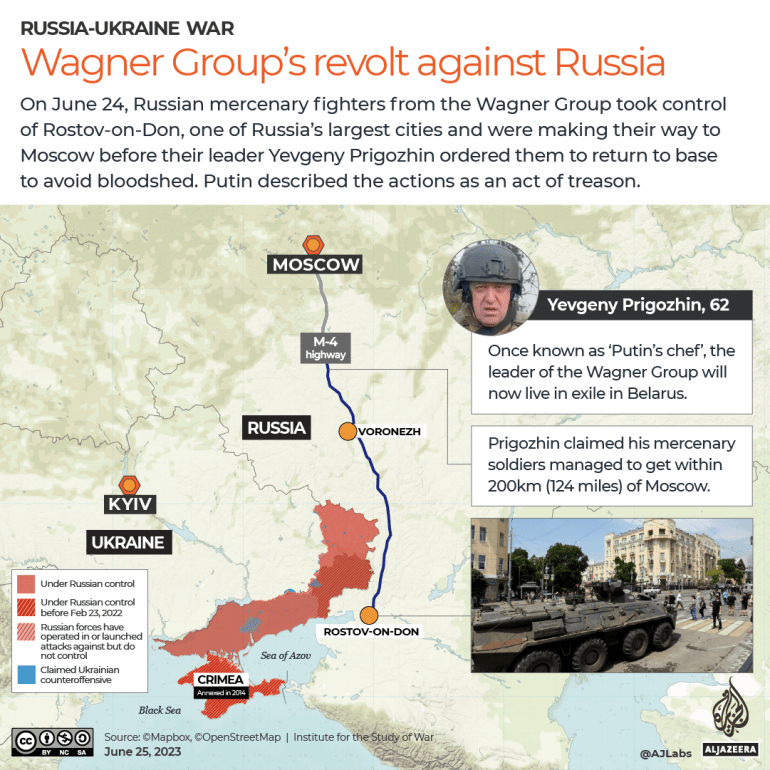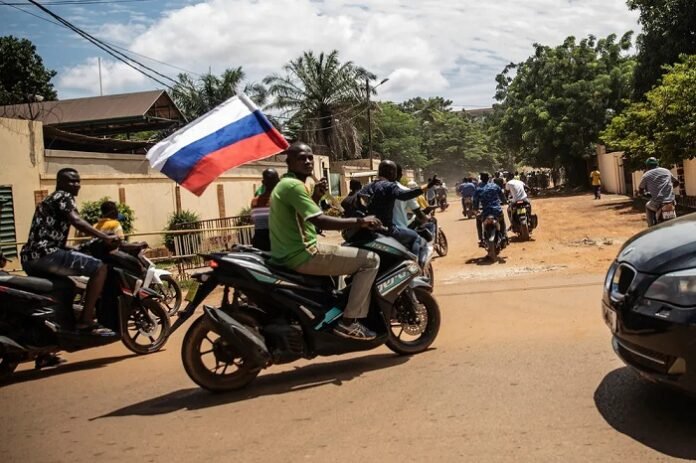Wagner is openly active in at least four countries in Africa, typically shoring up fragile regimes in exchange for minerals and other natural wealth
After Yevgeny Prigozhin, founder of Russia’s paramilitary Wagner group, staged a mutiny against President Vladimir Putin and his army last month, questions were raised over the future of his force in Africa – the cradle of its wealth and notoriety.
The dramatic rebellion ended in a deal by which Prigozhin was expected to move to Belarus with his men. But details about the accord remain sketchy, and as far as Africa is concerned, Wagner can count on its geopolitical and economic weight there to survive.
Wagner is openly active in at least four countries in Africa – Mali, Sudan, the Central African Republic, and Libya – typically shoring up fragile regimes in exchange for minerals and other natural wealth.
The group is frequently accused of atrocities and looting of natural resources, interfering in local politics in numerous conflicts, and running anti-Western information campaigns, especially in francophone West Africa. The United States has labeled Wagner a transnational criminal organization, imposing sanctions on Prigozhin and African officials with alleged ties to the group.
Despite Moscow’s assurances, Mali and CAR are in an uncomfortable position. “Mali and other countries that are linked to these non-state elements are now caught between Wagner’s weapons and Moscow’s wrath,” Sembe said.
West out, Wagner in
At Bamako’s request, French troops – welcomed in Mali in 2013 when the conflict began – have withdrawn. The United Nations peacekeeping force is also on its way out after the UN Security Council voted to immediately withdraw.
Wagner is not involved in Russia’s regular military, it has been seen for years as an armed extension of Moscow’s influence in Africa.
Analysts said it was resentment against France, previously the sole external influence in the region, for failing to stem the expansion of armed groups and supporting authoritarian regimes that opened the door for Wagner, led by the now-exiled Yevgeny Prigozhin.
“In Francophone countries, the presence of Russia is an expression of protest against France. It is a sign of revolt, but it has alienated them against the West,” Sembe told Al Jazeera.
“You have the French intervention in Mali with several operations and you have the … failure of France and international partners to support Mali to get out of the insecurity.”
With the UN force departing and Wagner destabilised, fear hovers over the delicate security atmosphere in Mali and its impact on the already beleaguered Sahel region.
“Clearly, we must realise these countries don’t have their own agency. And at the same time, it is also a reality for these countries – they don’t have the willingness to carry out internal reforms so that they can really be in charge of their own security,” Gilles said.
While Wagner was invited in, the mercenary force has been accused of involvement in human rights abuses in Africa. The United States has designated Wagner as a “transnational criminal organisation” responsible for widespread abuses.
A change of guard will likely not reverse the status quo. “I think it won’t change substantially the method of accountability with Wagner, the activities will be certainly maintained in this kind of form,” Bouessel said.
“Whether it is Prigozhin or another war entrepreneur, it does not really matter. It is more about who is going to control the company.”


